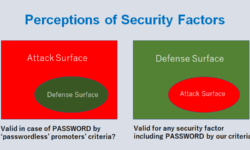Dr. Hans C. Mumm, recipient of one of the “Ten Outstanding Young American Award”, “American Patriot Ingenuity Award,” a senior Intelligence Officer/Cybersecurity professional with over 27 years of progressively challenging positions within the advanced (emerging and disruptive) technology fields and information technology arenas at National Intelligence (ODNI) the National Security Council (NSC), and the Central Intelligence Agency (CIA) participates in Risk Roundup to give a talk on “The Rise Of Autonomous Weapons Systems.”
The Rise Of Autonomous Weapons Systems
War is considered essential to resolving large-scale conflicts, and perhaps that is the reason we fight battles in all shapes and sizes. But unfortunately, this understanding also brings us a realization that while wars were there yesterday, they still exist today and will be there tomorrow as well.
With reference to wars, while war promotes the harm to and death of systems, infrastructure, and human beings, most humans still view human life as priceless. So, the rise of Autonomous Weapons Systems, which are human-independent systems that apply lethal force to a targeted opponent during any war, means that these rapidly evolving weapon systems can pick and engage any military targets without any further intervention by a human (operator) once activated. It fundamentally changes the dynamics of warfare and war implications.
While it is still difficult to grasp, the reality is that the autonomous systems for warfare are here. So, the question is whether, in the context of war, are fully autonomous weaponry machines intelligent soldiers or the ticking time bomb for humanity?
Uncrewed Missions
From mechanized systems to automated systems and now autonomous weapons systems that bring intelligence to military machines so they can sense, plan and act in a changing environment are on the rise. However, for those new to the topic, autonomous machines are made up of many intelligent systems working together (from different developers, different programs, and different locations) without any credible oversight or means to audit other parts and functions that can sense, plan, and act based on changing variables for the designated mission. In addition, the capability of self-operating autonomous systems and their application domains have expanded significantly in recent years, and no one is aware of each country’s potential. Also, the democratization of innovation has added to the complex dynamics of lone individuals having the ability to develop lethal weapons.
With the rapid advances in emerging technologies, countries increasingly rely on uncrewed air, space, and ground systems over the years to carry out complex missions with little oversight. And therefore, when autonomous systems are in the process of being weaponized and used on active military targets—the need for trusted, verifiable, self-learning autonomous systems is here. The need for high-integrity algorithms is also here. The need for audit capabilities is also here. However, in the absence of any risk management framework, the question is whether we can fully trust the self-learning, fully autonomous weapons systems without having the capabilities to audit the algorithms and all their hidden layers and programs to protect against any future threats to not only respective countries but also the very future of humanity.
Undoubtedly, autonomous systems promise us a future filled with efficiency, productivity, convenience, and comfort of self-driving cars, humanoid robots, and delivery drones to spy drones. However, while the underlying technology continues to mature at a rapid pace, and autonomous systems play a massive role in civilian and military applications, we need to understand that we have created an entirely new species without having an adequate understanding of our own algorithm and its evolution (a comparative language of the human operating system as compared to the artificial intelligence operating system). It is up to our ideas and imagination to visualize where this evolving comparative understanding will take us in the future.
It is also crucial to realize that this is not any ordinary technology from some distant future; this transformative technology with enormous implications for humanity’s future is already here. There are countless examples of intelligent autonomous technologies impacting the world today. While various levels of autonomy observed across industries can be leveraged in different scenarios, the decision-making autonomy where humans are sidelined is the one that causes great concern. For instance, Advisory Autonomy and Assistive Autonomy have humans in the loop. However, Autonomy for Decision-Makingfocuses on developing intelligent systems that can physically operate in complex environments with no or minimal human supervision. Again, that is a cause of great concern.
Complex Challenges and Risks
Any autonomous system is more than an algorithm where hundreds or thousands of decisions/actions/suggestions can orchestrate to reach any final decision for any given task or command. While there is not a straightforward algorithm but several trained A.I. models that work together to control and optimize real-world systems intelligently, many complex challenges and risks arise that must be evaluated further. For instance:
- Do we know where problems can emerge?
- How do autonomous weapons systems define and decide which goals are worthy of pursuing?
- Since autonomous weapons systems cannot be punished in a meaningful way just yet, how would we prioritize accountability?
- Should humans have a right to know whether they are dealing with a human being or with an autonomous system?
- Should there be a limit to what intelligent autonomous systems can suggest to humans?
- What societal and ethical issues are emerging?
- Can fully autonomous weaponry ethically take human life in the context of war?
- What legal implications of autonomous systems that we need to be mindful about?
- What are some ongoing initiatives toward the formulation of ethics of autonomous systems?
- What questions do these systems bring for the future of humanity?
Now is the time to discuss the Rise Of Autonomous Weapons Systems to safeguard our individual and collective future!
For more, please watch the Risk Roundup Webcast or hear the Risk Roundup Podcast
About The Distinguished Guest Speaker
Dr. Hans C. Mumm is senior intelligence officer/cybersecurity professional with over 27 years of progressively challenging positions within the advanced (emerging and disruptive) technology fields and information technology arenas. Dr. Mumm has led highly visible, high-pressure projects in autonomous systems research, artificial intelligence (A.I.) 5G initiatives, and cybersecurity/risk management programs for the intelligence community, including the Director of National Intelligence (ODNI), the National Security Council (NSC), and the Central Intelligence Agency (CIA).
Dr. Mumm’s research extends into emerging and disruptive technology for offensive and defensive missions supporting U.S. and coalition operations. His expertise focuses on determining the specific uses, exceptions, and allowances for robotics operations, including studying the unintended consequences, future applications, and misuse of such technologies. In addition, Dr. Mumm has created solutions to the U.S.’s need to adopt an integrated autonomous infrastructure that would allow a dynamic, cross-sector risk management process through private-public partnerships to transform the outdated U.S. transportation infrastructure.
Dr. Mumm was entered into U.S. Congressional Record (E1201-E1202 Sept 5, 2018) for his decades of dedication and service to the United States of America. He has earned twenty-three personal military ribbons/medals, including six military unit medals/citations and two Directors Awards, from the Defense Intelligence Agency. In 2016 he was awarded the People of Distinction Humanitarian Award and a U.S. Patent and Trademark for How to Harmonize the Speed of Innovation and Change with the Human Spirit’s Need for Leadership. In 2005, Dr. Mumm was recognized as one of the “Ten Outstanding Young Americans,” and in 2003, he was awarded the National Defense PAC “American Patriot Ingenuity Award” for his service during “Operation Iraqi Freedom.”
About the Host of Risk Roundup
Jayshree Pandya (née Bhatt) is a leading expert at the intersection of science, technology, & security. She is a globally recognized futurist passionate about protecting the Future of Humanity. She serves in the C-Suite of leading emerging technology startups, actively applying her scientific background to designing systems. She has a Ph.D. in Microbiology for her 1986-1991 work on Hydrogen Production by Halobacterium halobium, for which she was also awarded a National Young Scientist Award in Biochemistry in 1988-89. In addition, she has done two postdoctoral fellowships, one at the University of Hawaii and another at the University of Chicago. She also did her Executive Education Program in Operations and Change Management at Rice University – Jesse H. Jones Graduate School of Management in 2000 – 2001. She founded Risk Group LLC in 2002, which evolved into a Strategic Security Risk Research Organization, Platform, and Community in 2015. She is also the host of the influential Risk Roundup Podcast on a mission to talk to a million decision-makers. She has already conducted more than 260 one-to-one interviews with top decision-makers worldwide. She is now leading the global discussions on emerging technologies, technology transformation, and nation preparedness.
Her scientific research has contributed to more than 30 peer-reviewed articles in top international journals. Moreover, her research across many other domains has contributed to more than 100 publications and is pursued to provide strategic security solutions. She wrote for Forbes in 2019-2020 and now writes regularly for Risk Group. In addition, she has published three Strategic Security Risk Reports and three books, The Global Age, The Quantum Threat, and Geopolitics of Cybersecurity. She is an invited speaker on emerging technologies, technology transformation, digital disruption, and strategic security risks from the National Science Foundation to leading organizations in the United States, Europe, and Asia. She can be reached at + (832) 971 8322 and followed on Twitter @jayshreepandya and LinkedIn @drjayshreepandya.
About Risk Roundup
Risk Roundup, a global initiative launched by Risk Group, is a security risk reporting for risks emerging from existing and emerging technologies, technology convergence, and transformation happening across cyberspace, aquaspace, geospace, and space. Risk Roundup is released in audio (Podcast) and video (Webcast) formats. It is available for subscription on the Risk Group Website, iTunes, Google Play, Stitcher Radio, Android, and Risk Group Professional Social Media.
About Risk Group
Risk Group is a Strategic Security Risk Research Platform and Community. Risk Group’s Strategic Security Community and Ecosystem is the first and only cross-disciplinary and collective community that is made of top scientists, security professionals, thought leaders, entrepreneurs, philanthropists, policymakers, and academic institutions from across nations collaborating to research, review, rate, and report strategic security risks to protect the future of humanity.
Copyright Risk Group LLC. All Rights Reserved





 The Rise and Fall of the Indian Data Protection Regime.
The Rise and Fall of the Indian Data Protection Regime.